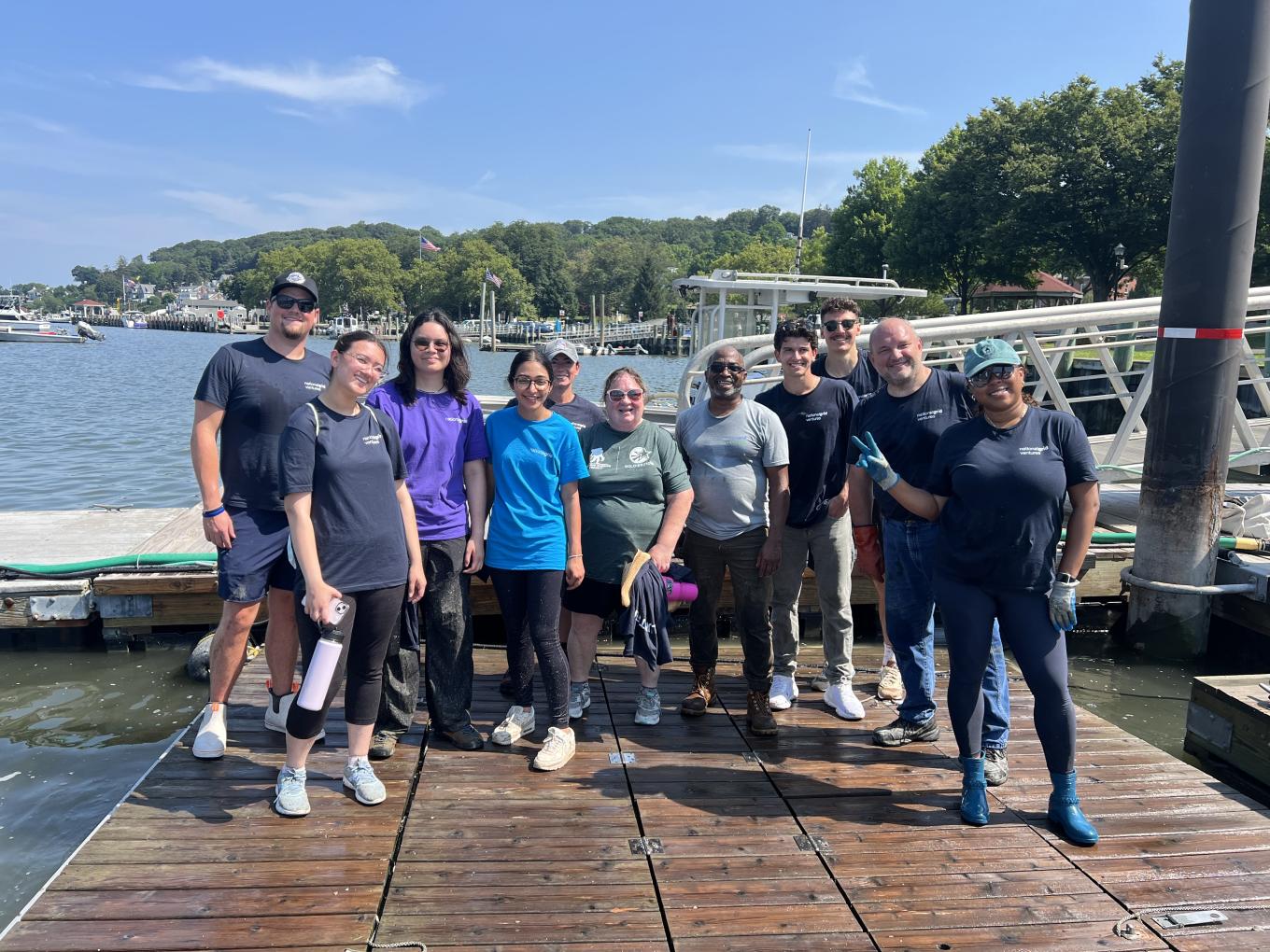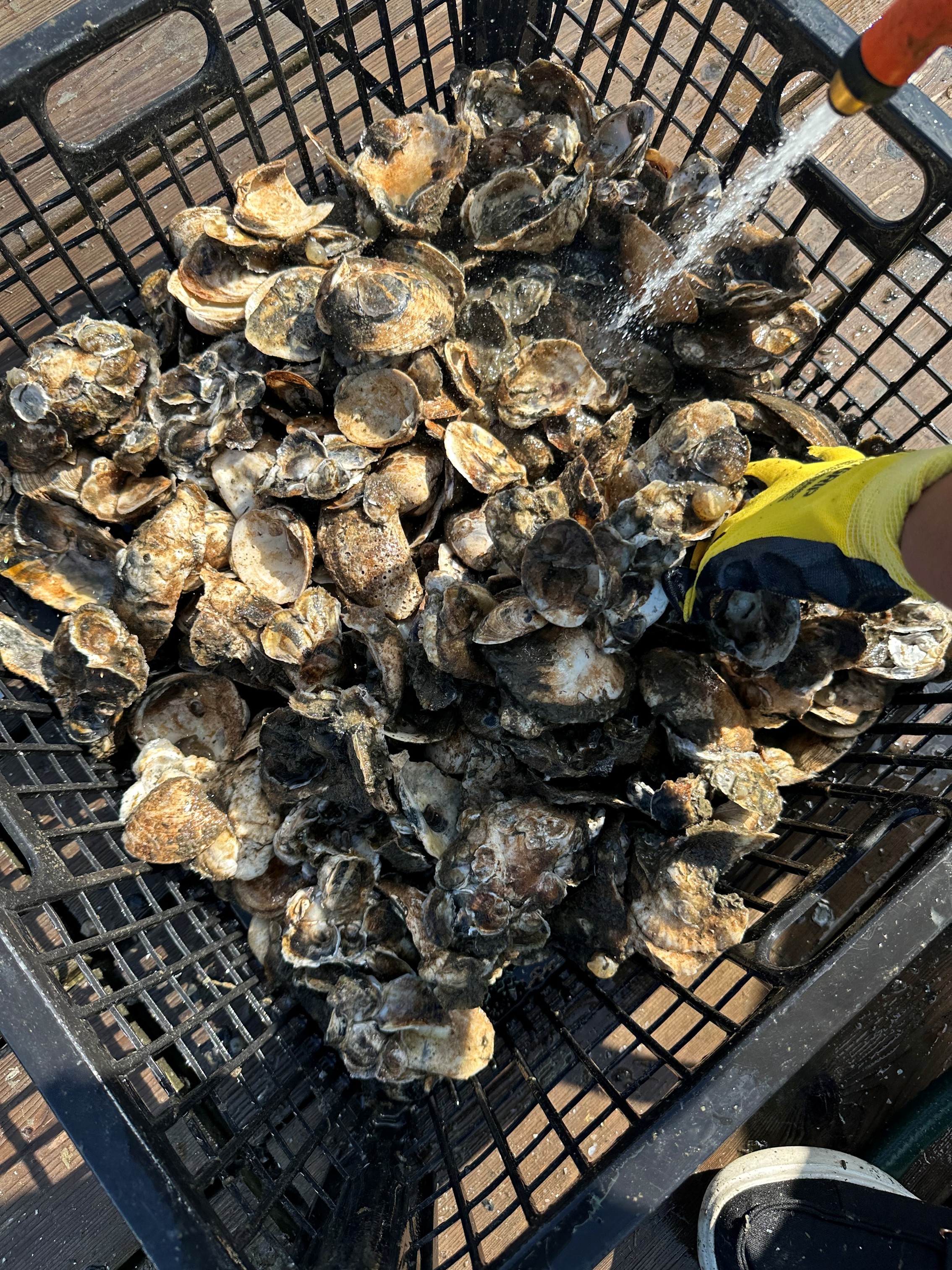
National Grid Ventures Supports Oyster Rehabilitation on Long Island
Oysters are a keystone species in the Long Island Sound- an important part of the foundation of a healthy marine ecosystem.
They are a key link in the food chain, act as a natural water filter to sustain water quality, and their reefs provide habitat for marine life. Oysters are also a key part of the history and even identity of New York City- a food source that has historically united all New Yorkers, from the Lower East Side to Fifth Avenue, and historically the Lenape indigenous people and the original Dutch and English settlers. Unfortunately, historical pollution and overharvesting have diminished populations of these aquatic creatures, impacting the water quality of Long Island's harbors and bays. However, National Grid Ventures is doing their part to help oysters recover by partnering with REACH- a Rotary club in Huntington, NY that works to improve water quality, restore habitat, and support aquaculture by reintroducing oysters into local waters. This initiative is part of a larger collaboration with Cornell Cooperative Extension's Spat Program, which aims to revitalise Long Island waters.
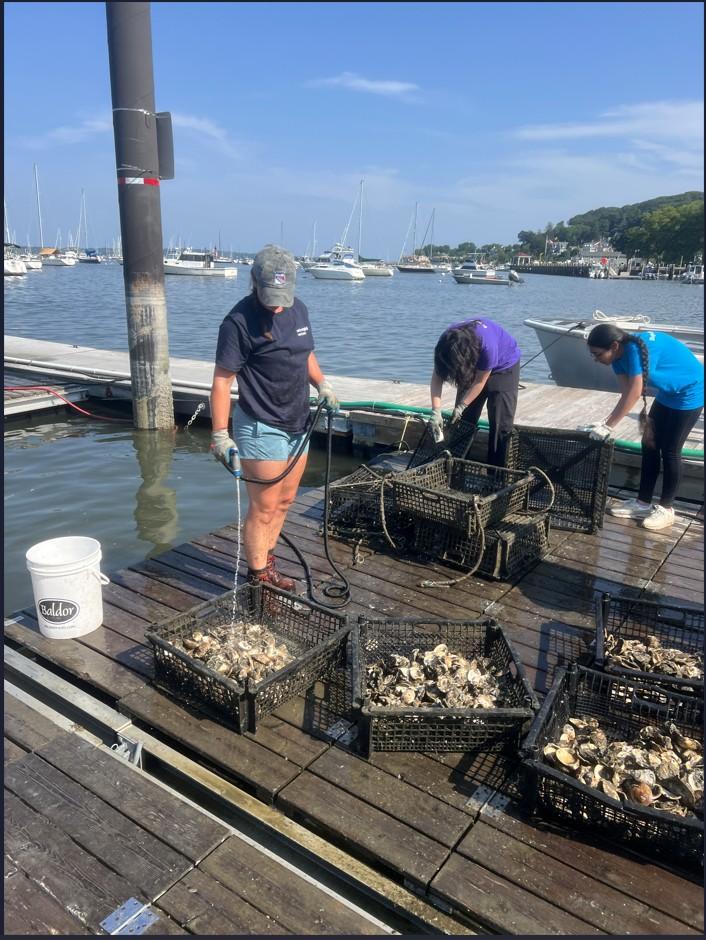
REACH and the Cornell Cooperative Extension use a method called Spat on Shell to help increase oyster populations. The method involves breeding oysters in a hatchery and then providing oyster or clam shell substrate for the larvae to attach to and grow. The baby oysters, still attached to their shell substrates, are then able to be released into Huntington and Northport Bays off of the Long Island Sound. The Spat on Shell initiative is really beneficial for water bodies. Not intended for human consumption, the oyster reefs that are created from the effort are vital for marine ecosystems, improve water quality, support biodiversity by providing habitat for fish and other marine life, and help to prevent erosion and reduce storm impacts.
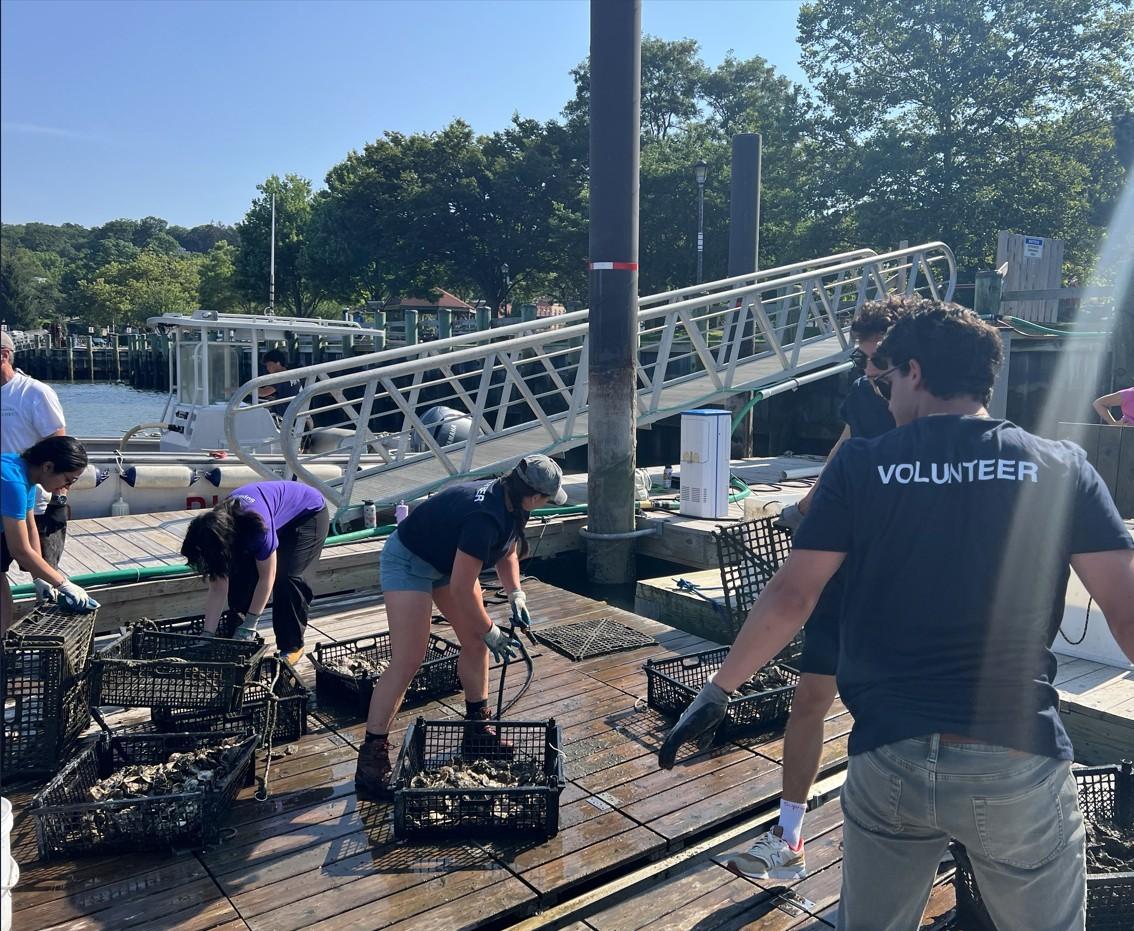
For the past three years, National Grid Ventures has partnered with REACH by providing funding and volunteers to assist with oyster release. In 2025, 43 National Grid volunteers supported oyster release over 4 days at Woodbine Beach, near our Northport Power Plant. Since the beginning of our partnership with REACH, over 100 National Grid volunteers have participated in 14 volunteering days at two beaches, totaling over 700 hours dedicated to the oyster reef project.
The efforts of NGV employees contributed to a very successful season for REACH. This year, they were able to plant over 100,000 oysters, and the animals in the nursery docks had an excellent 85% survival rate. The juveniles also boasted a large average size, reducing their vulnerability to environmental stress, predation and disease upon release. Survivorship of REACH's 2024 reefs is very high, and the organisation is hopeful this year's releases perform similarly over the next year.
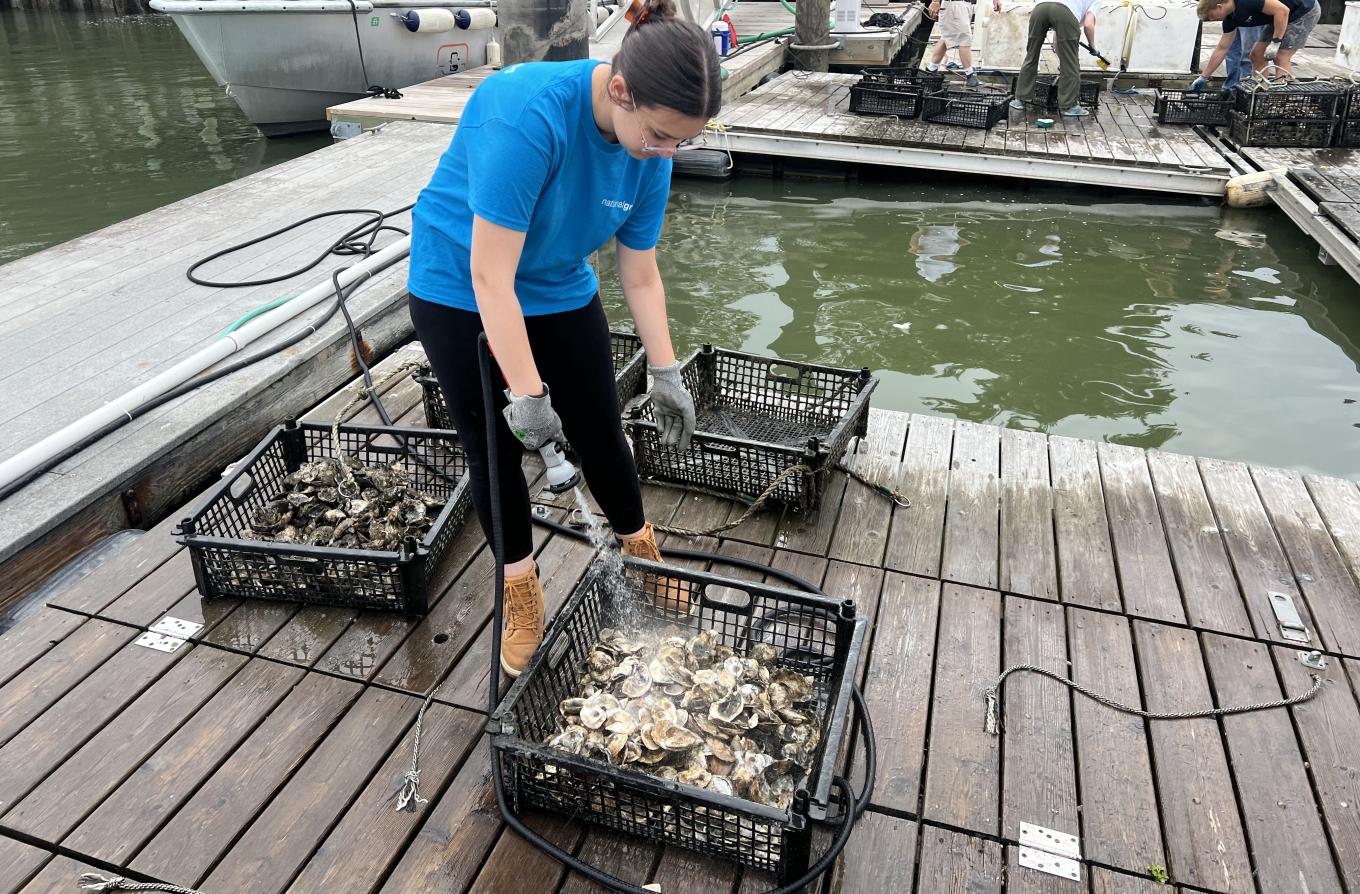
REACH has expressed gratitude in National Grid's contributions to the programme, with James Wylie, President and Lead Project Coordinator of the REACH Rotary Club, stating:
It is safe to say that over the past four seasons, the project has been an outstanding success in a number of ways. Without a doubt, National Grid's corporate sponsorship and personal participation has been essential in making the Huntington- Northport Oyster Reef Project a fixture in the community.
